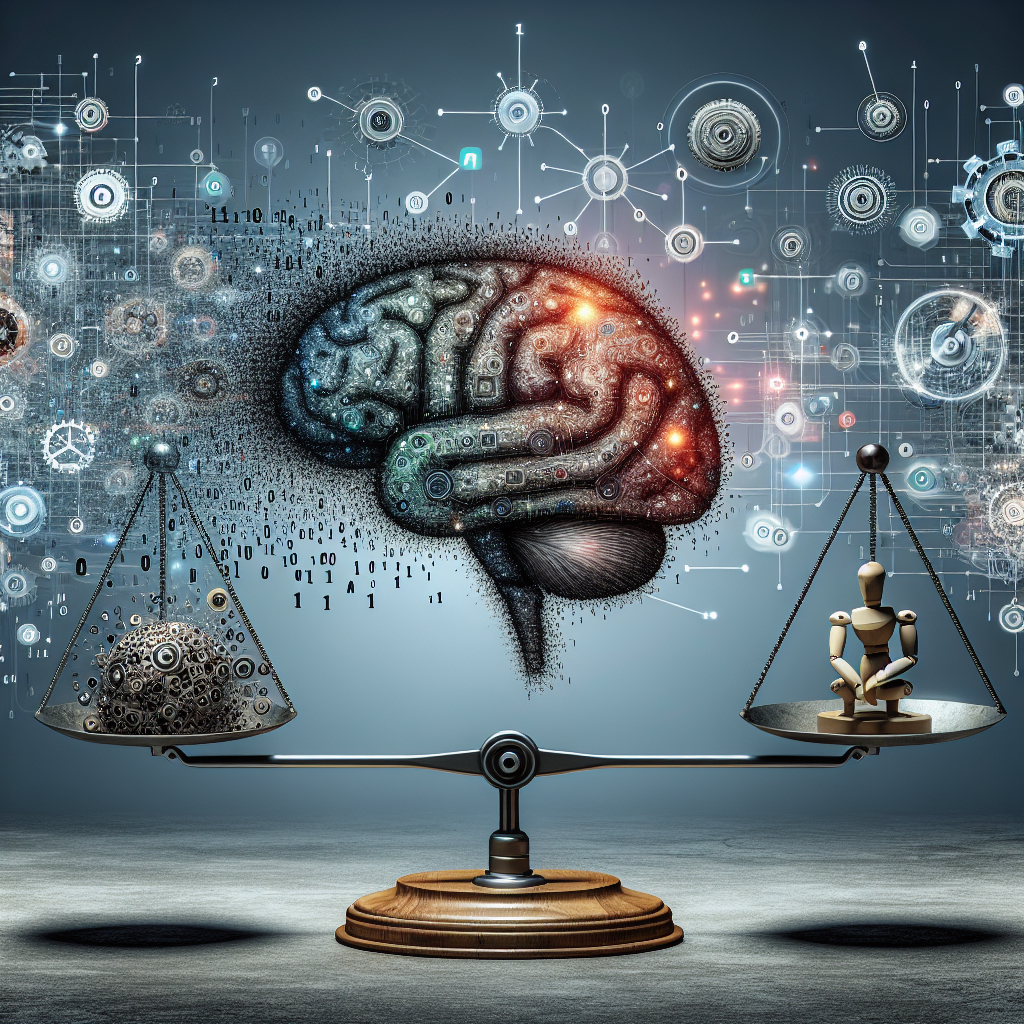The Impact of AI Platforms on Mental Health Diagnosis
In recent years, there has been a significant increase in the use of artificial intelligence (AI) platforms for mental health diagnosis. These platforms use algorithms and machine learning techniques to analyze data and provide insights into an individual’s mental health status. This technology has the potential to revolutionize the field of mental health diagnosis, making it faster, more accurate, and more accessible to a larger number of people. However, there are also concerns about the ethical implications and potential risks associated with the use of AI in mental health diagnosis.
One of the key benefits of using AI platforms for mental health diagnosis is the ability to analyze large amounts of data quickly and accurately. This can help clinicians to identify patterns and trends in a person’s behavior and symptoms that may be indicative of a mental health disorder. AI platforms can also help to reduce the risk of human error in diagnosis, as they are not subject to the same biases and limitations as human clinicians.
Another benefit of using AI platforms for mental health diagnosis is the potential for early detection of mental health disorders. By analyzing data from a variety of sources, including social media, wearable devices, and electronic health records, AI platforms can identify warning signs of mental health disorders before they become more severe. This can help to prevent crises and improve outcomes for individuals with mental health issues.
AI platforms can also help to improve access to mental health care for individuals who may not have easy access to traditional mental health services. By providing online assessments and support, AI platforms can reach a larger number of people and help to reduce the stigma associated with seeking help for mental health issues. This can be especially beneficial for individuals in rural or underserved areas, who may not have access to mental health services in their communities.
However, there are also concerns about the use of AI platforms for mental health diagnosis. One of the main concerns is the potential for privacy violations and misuse of data. AI platforms rely on collecting and analyzing large amounts of personal data, which raises concerns about the security and confidentiality of this information. There is also a risk that AI platforms may not always provide accurate or reliable diagnoses, leading to misdiagnosis and inappropriate treatment.
There are also ethical concerns about the use of AI in mental health diagnosis. For example, there is a risk that AI platforms could reinforce existing biases and stereotypes in mental health care, leading to disparities in diagnosis and treatment for certain groups of people. There is also a concern that the use of AI platforms could dehumanize the mental health care experience, reducing the role of human clinicians in the diagnosis and treatment process.
Despite these concerns, the use of AI platforms for mental health diagnosis is likely to continue to grow in the coming years. As technology continues to advance and improve, AI platforms have the potential to revolutionize the field of mental health diagnosis, making it more accurate, efficient, and accessible to a larger number of people. It will be important for policymakers, clinicians, and researchers to work together to address the ethical and privacy concerns associated with the use of AI in mental health diagnosis, to ensure that this technology is used responsibly and ethically.
FAQs
Q: How accurate are AI platforms in diagnosing mental health disorders?
A: AI platforms can be highly accurate in diagnosing mental health disorders, especially when they are trained on large amounts of high-quality data. However, there is always a risk of error, and it is important for clinicians to use AI platforms as a tool to support their clinical judgment, rather than relying solely on the output of the AI platform.
Q: Are AI platforms for mental health diagnosis secure and confidential?
A: AI platforms for mental health diagnosis should adhere to strict security and privacy standards to protect the confidentiality of personal data. It is important for individuals to carefully review the privacy policies of any AI platform they use and to ensure that their data is being handled responsibly.
Q: Can AI platforms replace human clinicians in diagnosing mental health disorders?
A: AI platforms can be a valuable tool for clinicians in diagnosing mental health disorders, but they should not replace human judgment and expertise. It is important for clinicians to use AI platforms as a support tool to enhance their clinical decision-making, rather than relying solely on the output of the AI platform.
Q: How can individuals access AI platforms for mental health diagnosis?
A: Individuals can access AI platforms for mental health diagnosis through online assessments, mobile apps, and telehealth services. It is important for individuals to carefully research and review the credibility of any AI platform they use, to ensure that they are receiving accurate and reliable information about their mental health status.

